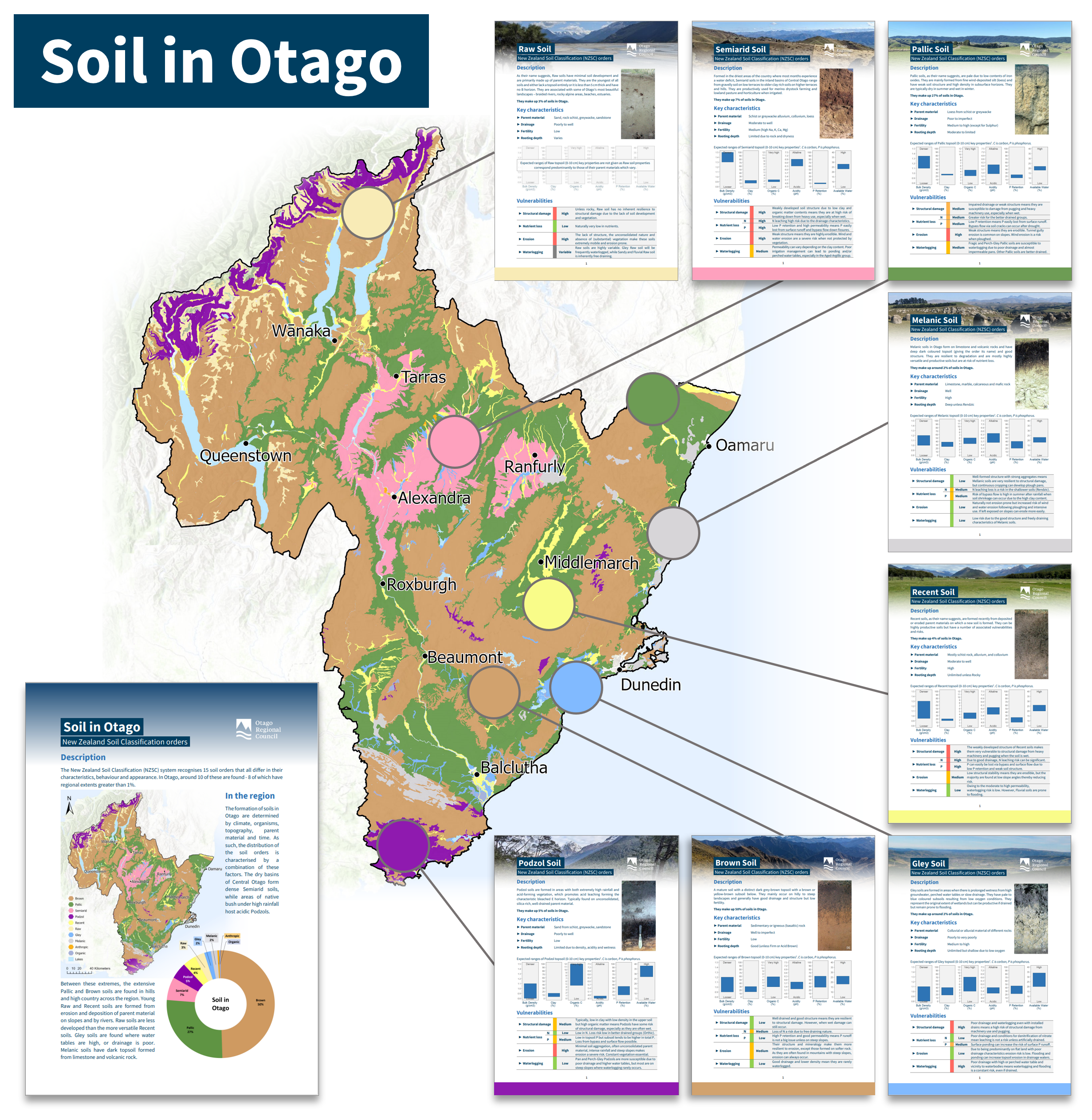Want the dirt on Otago soil?
Wednesday 24 July 2024

Otago Regional Council has new soil information for land managers’ toolboxes.
Wednesday 24 July 2024

Otago Regional Council has new soil information for land managers’ toolboxes.
ORC Land and Soil Scientist, Erik Button, has recently developed a series of free to download fact sheets on Otago soils with valuable information for farmers and growers.
“Not all soils are the same and their strengths and weaknesses vary as a result of how, when, where and what they were formed from,” Dr. Button says. “Understanding these aspects of your soil will help you achieve the best outcomes for both production and the environment.”
Formation of soil is determined by climate, organisms, land features, time, and the geological material the soil forms in. With Otago’s diverse geology, climates and landscapes, a range of very different soils have formed that have different opportunities and vulnerabilities.
Of the fifteen New Zealand Soil Classification soil orders that exist nationally, ten are found in Otago with eight of these making up 99% of soils in the region.

The factsheets highlight what makes each Otago soil different, where in Otago they can be found, their environmental vulnerabilities and management considerations for productive and sustainable land management.
They can help land managers design farm plans by identifying these vulnerabilities and how they can be managed to avoid degradation of the soil and impacts on the wider environment.
At a recent ‘Know Your Soils’ field day run by Thomsons Catchment Project, guest speaker and Lincoln University Professor of soils and physical science, Jim Moir commented, “the new ORC soils web content is the best of any regional council in New Zealand.”
The factsheets also serve as educational resources for anyone wanting to learn more about soil and to better understand Otago's natural resources.
A series of soil factsheets were developed for each of the eight most common soil orders in Otago and a general overview factsheet covering all orders.

Dr. Button has also been working on other new soil content for the website including guidance on sustainable soil and fertiliser management, as well as information about the ORC soil health monitoring programme and the data we collect in the region.
These resources have all been completed to align with the launch of ORC’s new website, which has received significant updates, including improved navigation and an A-to-Z search function to help users find information faster.
Helpful links

Otago’s diverse landscapes, geology and climates have formed a variety of soils; from coastal volcanic based soils and semiarid soils to acidic podzols and carbon-rich organic soils. Learn more about our soils, where they can be found and how they behave.

If you are using fertilisers on your land, it’s important to follow industry-agreed practices for managing them

There are a few important things to focus on to maintain or improve your soil. Learn what these are and what you can do to maximise your soil health.